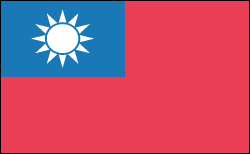Taiwan History


Breaking from Mainland Influence
Chiang died at 87 of a heart attack on April 5, 1975. His son, Chiang Ching-kuo, continued as prime minister and was a dominant figure in the Taipei regime. In April 1991, President Lee Teng-hui formally declared an end to emergency rule, which had existed since Chiang's forces originally occupied the island. In the first full election in many decades, the governing Kuomintang in Dec. 1991 won 71% of the vote, affirming the island's opposition to reunification with China. In Feb. 1993 the president, himself a native Taiwanese, nominated Lien Chan, another native, to be prime minister, marking a further generational shift away from the mainland exiles.
In the island's first free presidential election, voters defied mainland intimidation and gave 54% of the vote to incumbent president Lee Teng-hui.
In 1998, Taiwan renewed its push for a separate UN seat—its sixth attempt in recent years. The move has been blocked each time by the Beijing government.
President Lee Teng-hui rankled mainland China by announcing in July 1999 that he was abandoning the long-standing “One China” policy that had kept the peace between the small island and its powerful neighbor and that he would from then on deal with China on a “state-to-state basis.” China, which had vowed to someday unite Taiwan with the mainland, retaliated by conducting submarine warfare exercises and missile tests near the island in an effort to intimidate its tiny brazen neighbor, as it had once before in 1996.







